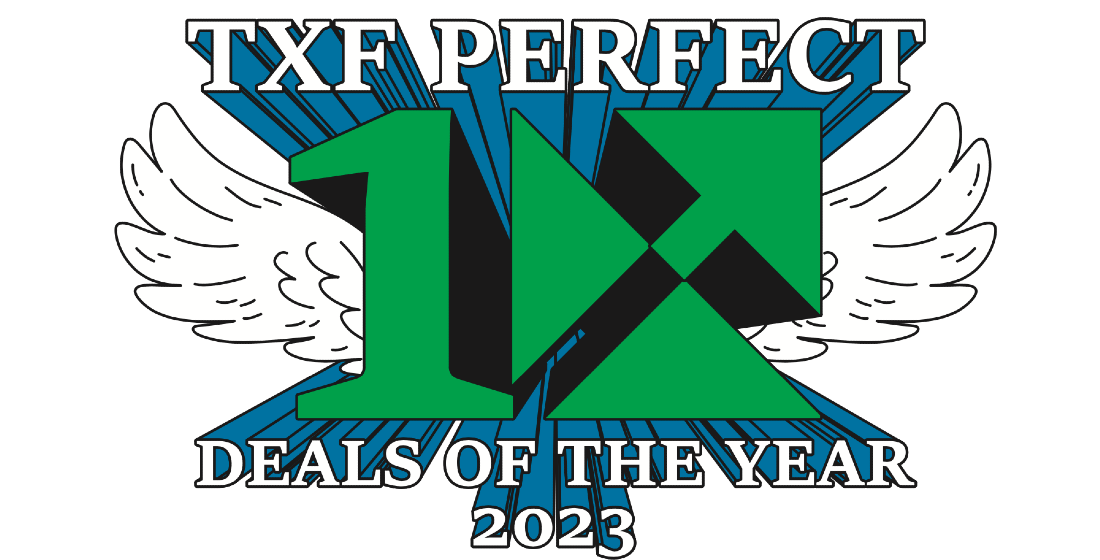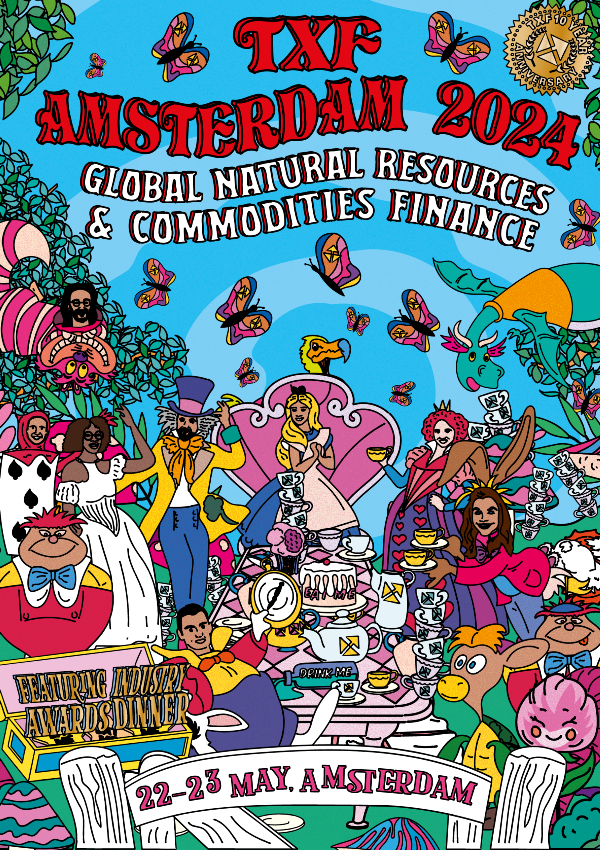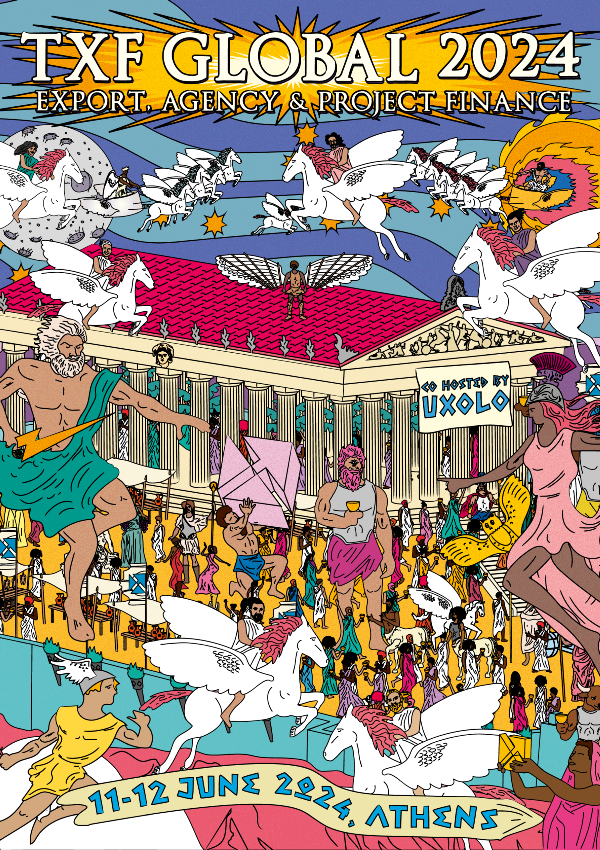Why are banks still steering clear of Iran? Q&A with Matthew Oresman
The lifting of Iranian sanctions following the country’s nuclear deal with the US heralded a wave of transactions and many predicted a gold rush.Global payment processor SWIFT started reconnecting Iranian banks to its system in January after four years of isolation, enabling them to process international payments. However, banks are still highly wary of going into transactions in the country, with the shadow of hefty fines slapped on BNP Paribas, Standard Chartered and others, hanging over them.

The lifting of Iranian sanctions following the country’s nuclear deal with the US heralded a wave of transactions and many predicted a gold rush. Global payment processor SWIFT started reconnecting Iranian banks to its system in January after four years of isolation, enabling them to process international payments. However, banks are still highly wary of going into transactions in the country, with the shadow of hefty fines slapped on BNP Paribas, Standard Chartered and others, hanging over them.
The Tehran Stock Exchange surged over 20% since implementation of the nuclear deal, yet Iranian president Hassan Rouhani is under pressure from hardliners in the regime as the lifting of sanctions is failing to bring the rapid economic relief it was hoped to.
Why are banks scared to enter into the market? How exactly are they dealing with the sanctions which remain in place? Is there hope for a renewed wave of business with Iran? TXF met legal sanctions specialist, and Pillsburycounsel, Matthew Oresman to answer these questions and more in an in-depth interview.
Trade & Export Finance (TXF): What is the feeling in the market about Iran?
Matthew Oresman, counsel at Pillsbury (MO):
It’s still a pretty complicated situation given some of the large fines that have been imposed on global banks for sanctions evasion. Everyone is quite cautious. Obviously there is financial opportunity for those who are more aggressive, but for many banks it’s just not worth the risks, at least in the near term. The SWIFT banking system reopening to allow Iranian transactions should be a signal to the banks that it’s possible to engage in business with Iran.
Governments are explaining the rules to banks to make it easier for companies, exporters especially, to benefit from trade with Iran. They’re discussing what kind of sanctions remain in place, which is tripping up many banks as they figure out how to get systems in place so they don’t miss anything. Getting paid is one of the major challenges we’re coming up to now.
In addition, the fundamental risk profile of Iranian transactions has not changed very much. Many Iranian entities remain subject to sanction. The role of the Iranian Revolutionary Guard, which is a sanctioned entity, is especially pervasive across business; often in hidden ways, which complicates customer due diligence. Iran also remains a country of money laundering concern. Despite the fact some sanctions have dropped, doing business with Iran can still be very risky for banks.
TXF: Which sanctions remain in place?
MO:US sanctions remain in force on US entities with few exceptions. It’s forbidden to use US dollars to finance Iranian transactions.A lot of commodities trading is done in US dollars, so that makes it a little more complicated. Banks are going to stay away from anything related to US dollars andIran, so they have to build firewalls.
European general sanctions have been dropped but a number of Iranian individuals and corporates remain on European, US and UN lists,so there still has to be an intensive screening to make sure you aren’t doing business with them. You could run afoul of European or international sanctions, or particularly the US sanctions - their entity list is fairly long. Even a European company dealing with someone on the American list would be in breach of US secondary sanctions and would suffer the consequences.
Similarly, any item being exported from Europe that contains more than 10% US origin technology is still subject to US export controls and requires an export licence. Licences aren’t typically given to exports to Iran except in a few sectors, such as aviation. Soif you’re a Siemens or Volvo or anyone using US origin technology, those restrictions could impact your ability to export to Iran. Any trade finance has to be carefully screened to make sure export licences have been obtained.
TXF: Are banks reluctant to make the effort to get to know all these rules and ensure they’re compliant - is it just not worth it for the volume of transactions they might gain access to?
MO:At the moment people are being cautious as they figure it out, but it will become more open. Banks will go where the customer goes, and if their larger customers start demanding that service the banks will likely adopt. But it’s a big world out there and there’s plenty of other ways to make money, so there’s not a huge appetite for risk in the near term.
You’re going to see things move more rapidly in small and medium sized regional banks who want to get a part of that trade.
With the volume of Italian commercial engagement going on with Iran, I would expect some smaller Italian banks to get into Iranian banking and trade finance sooner than some of their counterparts in other countries. The Italian government has taken a very aggressive marketing approach to Iran, they have deals to export to Iran, and historically there’s been a lot of Italy-Iran trade in energy, infrastructure and mechanical exports.
TXF: Is there a first mover advantage for those that are moving in?
MO:Potentially, but there’s also a lot more risk. This isn’t necessarily from the sanctions violations but general commercial risk if you pick the wrong partner. So some are sitting back and waiting, letting others clear the minefield. But fortune favours the bold, I guess.
TXF: Are the majority of transactions between new trading partners, or are they old relationships being re-established?
MO:I haven’t seen data on this but I would imagine it’s the latter. Iran’s a huge country and decently integrated economy, so there’s plenty of companies that have been treading water for the past few years.
TXF: What are the alternatives for companies facing a lack of trade finance, and what would the dominant currencies in these transactions be?
MO:The biggest alternatives are Indian and Chinese banks.They would likelyuse renminbi. And there’s no reason the Chinese couldn’t do euro-denominated transactions, because they have relationships with the European banks.I think it would make a lot of sense for euros to be the dominant currency.
TXF: How do you think this is going to develop over the next few months? Will larger banks start taking more risk?
MO:There’s going to be more and more comfort and a few first movers, deals are being negotiated. When payment is ready that’ll be a big indicator.
In exports and in the aviation space there are major deals being discussed regularly, and these willneed to get paid for. Counterpartieswon’t be comfortable with small regional banks handling those big dollar amounts, so that may force the issue with the bigger banks.
That being said, the message from the larger UK banks is that they have no plans to engage in Iranian business for the foreseeable future. We’ll then have to see if the other European banks take a different approach than the UK banks.
TXF: Which sectors will move fastest in terms of deals?
MO:Aviation, automotive, commodities, consumables. Iran previously had a network to get Western consumer goods but now it’s going to be a lot easier and more direct, with less risk of counterfeit, so I think there will be a greater stream of retail products.
TXF: Money washing, or converting other currencies from Iranian transactions into dollars, is a breach of sanctions. How do banks avoid this? Do they have to make sure the money from a transaction is never converted into dollars?
MO:The proceeds of the transaction can’t be changed into dollars, but from a practical standpoint money is fungible so it does become a challenge. As more money comes into that bank account, having that money stay separate is one of the compliance challenges. I don’t think there’s an easy answer yet on how they’re going to handle that - you need to look at segregated accounts, or if protocols are in place, time frames and things like that.
TXF: At a talk by a law firm on sanctions, experts said one of the big fears that banks have is that sanctions might ‘snap back’ suddenly - how likely is this and what happens in that case?
MO:I think there’s always a chance of snapback. The ball is really in Iran’s court. If Iran remains compliant with the deal there won’t be snapback. Of course if Iran continues to take actions in other areas that are against the national security interests of the western allies, you could either see snapback or the re-imposition of other types of sanctions.
There’s the political debate in the US with the presidential election: the Republican candidate Donald Trump says he would upend the deal. I can understand why some banks would want to wait until after the presidential election; that would clarify more for them what the future holds.
So there are definitely political risk factors. There’s no retroactive punishment for actions taken under contracts legally entered into prior to snapback, but sanctions would prohibit any further activity.
TXF: Do you think part of the reluctance of banks is a reputational hazard?
MO:It could be, but I think that’s a PR calculation. That’s a risk that banks have to look at in any market, not just Iran.
TXF: In the discussions you have with banks, are you encouraging them to go into deals?
MO: We try to keep it pretty straight and just give a legal analysis, what they can and can’t do. It’s ultimately a business decision, and as an American law firm we are prohibited from facilitating transactions with Iran, so we’re in a little more complicated position than a European law firm. We can say this is legal or not legal, but we can’t actually do the deal work because we’re not allowed to facilitate transactions ourselves.
TXF: Do you foresee any change in these sanctions?
MO:Not for the foreseeable future. They are one of the major bits of leverage left and I don’t think there’s an urge to remove them anytime soon.
TXF: Is there a frustration from American banks that they’re not able to go into transactions European banks are going into?
MO:I’m not sure, because there aren’t many American companies doing business with Iran, so their client base isn’t involved. The global American banks do a lot of business in Europe and might feel frustrated, but then again most of their European competitors aren’t rushing into Iran.
I think there’s a frustration overall in the American business community about the deal. It was a bit of a shock for American exportersthat at the end of this very intense political drama, when the deal was approved it didn’t actually change much from the American perspective.
TXF: I understand that even to be discussing a potential deal in the Iranian market is a breach of sanctions. Is that correct?
MO:It’s a little more complicated than that and it differs with some sectors, like aviation. Also, US subsidiariescan be set up in such a way that allows transactions and negotiations.
TXF: Are the different sanctions regulators putting out contradictory messages?
MO:I think the information banks are getting is quite consistent, but businesses aren’t getting the specific assurances they want. The US, isn’t granting any type of immunity in case things go wrong or pre-approve a transaction that doesn’t require a license, so the companies aren’t getting much that is bankable in terms of protecting them in the future.
TXF: I suppose that’s where you come in to give advice?
MO:Yes,exactly – there are mainly banks and exporters coming for advice.If the export is permissible then the banks will hopefully figure it out, but the payment side is one of the bigger challenges people are looking at. If you’re selling a widget to Iran, how is that company going to pay you for the widget if the banks aren’t taking Iranian transactions?
So pre-clearing and getting the banks comfortable is part of the aim.
TXF: In an attempt to clarify the situation to foreign banks, John Kerry announced on 23 April that European banks could engage in Iranian transactions and the US ‘is not standing in the way of business that is permitted with Iran’. Were banks quite unsure about the situation before and did that change the game a bit?
MO:Yes, I think that helped, and SWIFT opening up banking transactions for Iran was important.
However, the US is also basically asking banks to ignore a lot of other risks. In particular, they are asking banks,who are under non-prosecution or other types of agreement with the US Department of Justice for violating sanctions, to ignore risks. Pointing to a press release from John Kerry isn’t going to stop them from being fined in the future. It’s an inconsistent message from the US and the banks are ultimately going to manage their risks in a way that is best for the banks – not some diplomatic agreement.
John Kerry and Philip Hammond met with UK and European bankers last Thursday to encourage them to engage in transactions with Iran. But HSBC chief legal officer Stuart Levey said the secretary of state’s claims were contradictory with the continuing sanctions, and said the bank would not engage with Iranian business in the current climate.
Uncertainty and confusion are bad for business – if Europe, the US and Iran truly want to open trade with Iran there needs to be clarity about sanctions and potential repercussions. In a generally shy market, Iran may be just one risk too many to take. Western financial institutions look set to lose market share in Iran to the Asian banks dominating now, unless they act fast.

.png)




